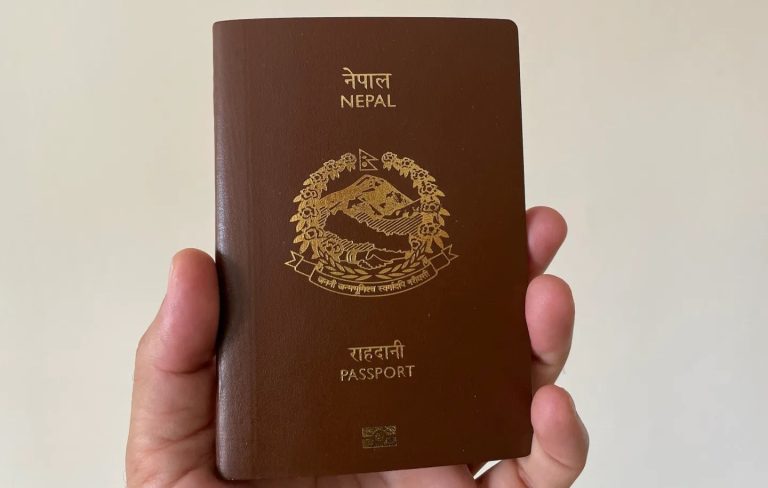Thousands of Nepali students dreaming of higher education in the United States are facing growing uncertainty due to strict visa restrictions. The US, once the top destination for Nepali students, has seen a drop in admissions as new policies delay or cancel student visa processing.
Nepal ranks as the 10th largest country of origin for international students in the US. However, the number of Nepali students has fallen to 16,482. Although nearly 8,000 no-objection certificates were issued last year, many students have been left stranded due to the shifting policies under the Trump administration.
The US State Department recently instructed its embassies to stop issuing new visas. It also introduced stricter screening processes, including social media checks. This has created confusion among students, as only those with scheduled interviews can proceed, while new applicants are being denied.
College counselors in Kathmandu report that many students who had applied earlier managed to get interview dates. But uncertainty remains high even for those already studying in the US. Students have been advised to carry their passports and documents at all times, even during local travel, due to rising scrutiny.
“I didn’t go home this summer because I wasn’t sure I’d be let back in,” said a Nepali undergraduate student in Ohio, who preferred not to be named.
The policy changes are also affecting those with Temporary Protected Status (TPS). Over 7,000 Nepalis with TPS must return to Nepal by August 5 or face deportation. Last week, 37 Nepalis were flown back to Kathmandu on a chartered flight.
Educational institutions are worried. “The US is one of the most sought-after destinations for higher education, and the ban will definitely impact bright students,” said Narottam Aryal of King’s College in Kathmandu.
The visa clampdown originally targeted students from Harvard University and later expanded to Chinese nationals. Now it affects all international students, including those from Nepal. Universities that depend on global student enrollment, such as Columbia and NYU, are seeing sharp declines.
Some students have been informed via email that their visas were revoked over minor infractions like traffic tickets. Others with no legal issues are also being affected. The fear of deportation is widespread.
In one case, an Indian PhD student at Columbia lost her visa, allegedly due to social media posts on political topics. This has raised concerns about privacy and free speech in a country that once promoted both.
Many students invest everything to study in the US, using scholarships, loans, and even family savings. Most of them pursue STEM fields, which offer longer post-study work options. But the tightening rules are now pushing them to explore other destinations.
The UK has seen a 63% rise in Nepali student enrollments this year. Japan has over 64,000 Nepali students, and Canada remains popular despite its own stricter visa policies. Universities in Malaysia, Hong Kong, and China are also targeting students who were previously US-bound.
Even US university campuses abroad, such as NYU Abu Dhabi and Northwestern Qatar, are receiving more applications. These institutions are expanding infrastructure to absorb the increased demand.
Meanwhile, institutions in Nepal see a silver lining. “This could be the time to improve education quality here and reduce our dependence on foreign universities,” Aryal said. He believes more students may now complete their undergraduate studies in Nepal before going abroad for graduate school.
Nepal’s location between India and China makes it especially sensitive to shifts in global policy. China is already offering more scholarships to Nepali students to benefit from the US visa retreat.
While American universities are challenging these restrictions in court, and some temporary relief has been granted, the uncertainty continues. Students and families are making backup plans.
“Foreign policies change based on national interest,” Aryal noted. “We must offer better higher education options within Nepal to retain our talent and secure our future.”


